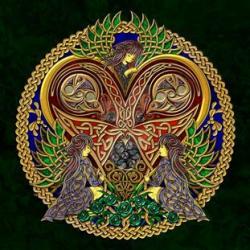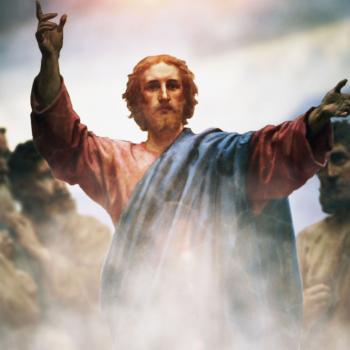/arc-anglerfish-arc2-prod-mco.s3.amazonaws.com/public/5ASZXHTKANDNXDDL22XGKEZ2PM.jpg) I have always loved the book of Daniel. It has everything a Sunday School teacher dreams about in a book of the Bible. It has the drama of the fall of Jerusalem, the miracles of the fiery furnace and the lions den. Daniel has the all the prophecy one end times person could desire. It tells of the future as well as tells of Daniels resolute promise to not conform to Baylon but honor God.
I have always loved the book of Daniel. It has everything a Sunday School teacher dreams about in a book of the Bible. It has the drama of the fall of Jerusalem, the miracles of the fiery furnace and the lions den. Daniel has the all the prophecy one end times person could desire. It tells of the future as well as tells of Daniels resolute promise to not conform to Baylon but honor God.
Certainly this is the book of the Bible sermons and bible studies were made for. But within all of that amazing and beautiful tapestry, is a theme that calls to us as Americans. It is a theme I have never seen pastors take in sermons or teachers in Sunday School. No Bible study has attempted this line of thinking either. And that, friends, is the reality of Daniel as an Indigenous person having to fight conformity in an empire that is seeking to consume his culture as their own. This is the story of Daniel and the parallels that can be drawn to indigenous people in the last 150 years in the same boat.
Daniel as a part of a Dominated Culture
Now as we may know, Daniel was an upper class Israelite who lived during the Babylonian invasion and occupation of Judah. This invasion saw the destruction of the Jewish temple, and really, the Jewish way of life at the time. As was the standard practice of invading rulers, Nebuchadnezzar deported the Jewish intelligentsia and forced them to relocate to Babylon. According to the Talmud, Daniel was endowed with an incredible gift of wisdom such that if one were to weigh his wisdom against the wisdom of all the wise men of the gentile nations, the wisdom of Daniel would outweigh them all.
As we look at October and the growing issues revolving around Columbus Day/Indigenous Peoples Day, we will find a lot of similarity between Daniels early life and the plight of Native cultures in America. Like many of the First Nations, Daniel was ripped from his homeland after bloody warfare. He watched the culture of his forefathers literally burned to the ground. He was then forced marched north to Babylon and held in Captivity for the rest of his life. But Daniel rebelled and refused to give up his native culture for that of Babylon. This is not much different from the last 300 years of Native American History in the United States.
We Cheer for Nebuchadnezzar?
I find it very interesting that we celebrate Daniel, but also celebrate the modern day Nebuchadnezzar of history in what Columbus represented. Daniel story is a story of remaining on Gods side no matter the cost. What side are we on? I will be the first to admit that blaming the person, Christopher Columbus for everything that happened after him is not fair. I can however also see that the group and interests that he represented went on to forever alter, very negatively, the course of history in the Americas. Columbus’ “discovery” of these lands enticed wave after wave of settlers to come to this country and continually send natives to Babylon.
We must, at a minimum admit that we have done what Nebuchadnezzar did with Israel. We have attempted to assimilate large independent cultures while taking and appropriating those things we have found valuable in their culture, land and wealth. This same process has occurred in Africa with the European powers, Ireland with Britain and China with Tibet. The thing that is glaring to the outsider is that we cheer for Daniel as Christians on Sunday, but we act like Nebuchadnezzar the rest of the time. We have to own the fact that in the tapestry of history, historic American culture is the Nebuchadnezzar, not Daniel.
Own our Part and Repent/Repair
So as an American nation, what can we do? As I am constantly reminded, it wasn’t the current people of this nation that did these horrible things to the Native Americans. This is true, but as a Celtic Chirstian, having bloodlines to the Gaelic peoples that were dominated out of Europe in the same way, I understand that we must repent and repair.
The Waymarks of Ray Simpson bring to light an important part of Celtic Christianity, and that is to care for and restore relationship. As Celtic Christians we are called to care for and restore the marginalized of the world. In this instance, we are called to repent of the American past of consumption of native peoples and their treasure/culture. We are then called to actively repair the broken relationship.
Conclusion
One of the greatest ways we can do this is to repent of being Nebuchadnezzar. Which is our current position in the relationship with First Nations. Instead of throwing them into the fire, we can stand in the fire with them. The way Christ did with Shadrach, Meshach and Abendego. We must honor their choices to not eat the kings meat. In the end we must treat them how God desires, as image bearers of the Holy One. Repenting and repairing take work and trust building.
Maybe a first step could be to stop celebrating the beginning of the end of their great cultures every October. Maybe honoring their contributions and valuing their part of our shared heritage would go much farther than honoring the person who stumbled onto already controlled lands. Just maybe, we could stop honoring the most painful moment of a cultures history, and begin to help the healing.











